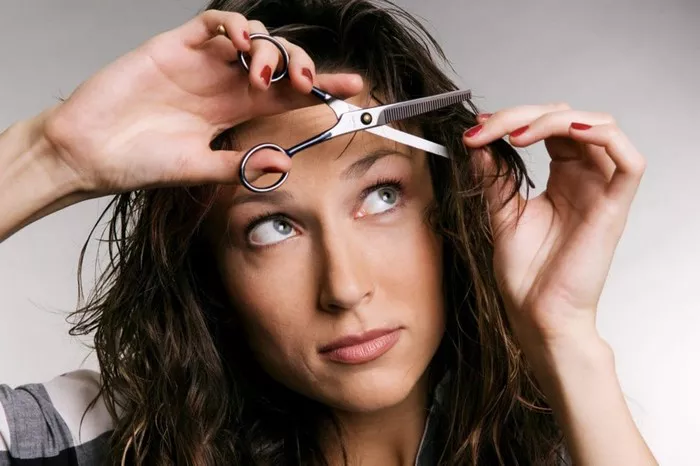Hair loss is a common concern for both men and women, impacting self-esteem and confidence. While genetics play a significant role, there are various preventative measures individuals can take to minimize hair loss and maintain healthy locks. From lifestyle changes to specialized treatments, here’s a comprehensive guide to the best strategies for preventing hair loss.
1. Maintain a Balanced Diet
A balanced diet rich in essential vitamins and nutrients is crucial for healthy hair growth. Incorporate foods high in protein, such as lean meats, fish, eggs, and legumes, to support strong hair follicles. Additionally, include plenty of fruits and vegetables to ensure adequate intake of vitamins A, C, and E, which promote scalp health and stimulate hair growth.
2. Stay Hydrated
Proper hydration is essential for overall health, including the health of your hair. Drinking plenty of water helps to flush out toxins from the body and keep the scalp hydrated, preventing dryness and potential hair damage. Aim to drink at least eight glasses of water per day to maintain optimal hydration levels.
3. Avoid Harsh Chemicals
Many hair care products contain harsh chemicals that can strip the scalp of its natural oils and lead to hair damage and loss. Opt for gentle, sulfate-free shampoos and conditioners that nourish the scalp and hair without causing irritation. Additionally, minimize the use of heat styling tools such as blow dryers, curling irons, and straighteners, as excessive heat can weaken hair strands and contribute to breakage.
4. Practice Stress Management
Chronic stress can have a significant impact on hair health, leading to increased shedding and thinning. Practice stress management techniques such as meditation, yoga, deep breathing exercises, or regular physical activity to reduce stress levels and promote relaxation. Prioritizing self-care and finding healthy coping mechanisms for stress can help maintain a healthy scalp environment conducive to hair growth.
5. Protect Your Hair from Sun Damage
Excessive sun exposure can damage the hair shaft and weaken hair follicles, leading to hair loss and breakage. Whenever possible, protect your hair from UV rays by wearing a hat or using a sunscreen specifically formulated for the scalp and hair. Additionally, avoid prolonged exposure to chlorinated or saltwater, as these can also cause damage and dryness.
6. Massage Your Scalp Regularly
Scalp massage is a simple yet effective way to improve blood circulation to the hair follicles and promote hair growth. Use your fingertips to gently massage the scalp in circular motions for a few minutes each day, focusing on areas where hair loss or thinning is most noticeable. Scalp massage not only stimulates hair growth but also helps to relax the scalp muscles and reduce tension.
7. Consider Nutritional Supplements
In some cases, nutritional deficiencies can contribute to hair loss. Consider taking supplements containing vitamins, minerals, and essential fatty acids that support hair health, such as biotin, vitamin D, iron, zinc, and omega-3 fatty acids. However, always consult with a healthcare professional before starting any new supplement regimen to ensure it is safe and appropriate for your individual needs.
8. Avoid Tight Hairstyles and Hair Treatments
Tight hairstyles such as ponytails, braids, and tight buns can cause traction alopecia, a type of hair loss resulting from prolonged tension on the hair follicles. Opt for looser hairstyles that minimize pulling and strain on the scalp. Similarly, avoid chemical treatments such as perms, relaxers, and bleach that can weaken the hair shaft and lead to breakage and hair loss.
9. Get Regular Trims
Regular trims are essential for maintaining healthy hair and preventing split ends, which can travel up the hair shaft and cause breakage. Aim to trim your hair every 6-8 weeks to remove any damaged or split ends and promote healthy growth. Additionally, consider investing in professional hair treatments such as deep conditioning or protein treatments to keep your hair strong and resilient.
10. Seek Professional Treatment
If you’re experiencing significant hair loss or thinning, it’s essential to seek professional help from a dermatologist or trichologist. They can evaluate your scalp and hair health, identify any underlying causes of hair loss, and recommend appropriate treatment options. These may include prescription medications, topical treatments, or advanced procedures such as platelet-rich plasma (PRP) therapy or hair transplant surgery.
In conclusion, preventing hair loss requires a multifaceted approach that addresses both internal and external factors affecting hair health. By following the strategies outlined above, you can promote a healthy scalp environment, strengthen hair follicles, and minimize the risk of hair loss. Remember to be patient and consistent with your hair care routine, as it may take time to see results. With dedication and proper care, you can maintain a full and healthy head of hair for years to come.


